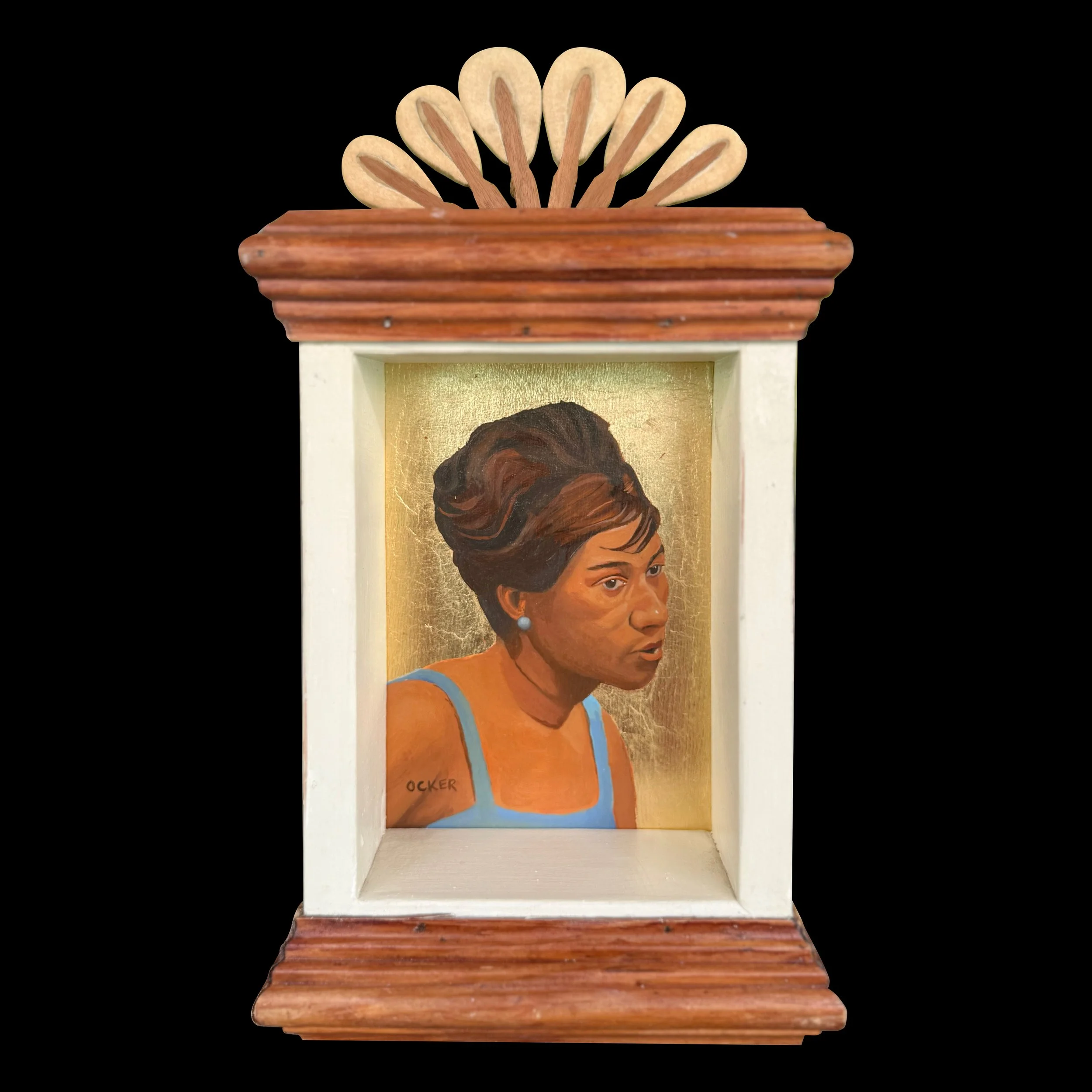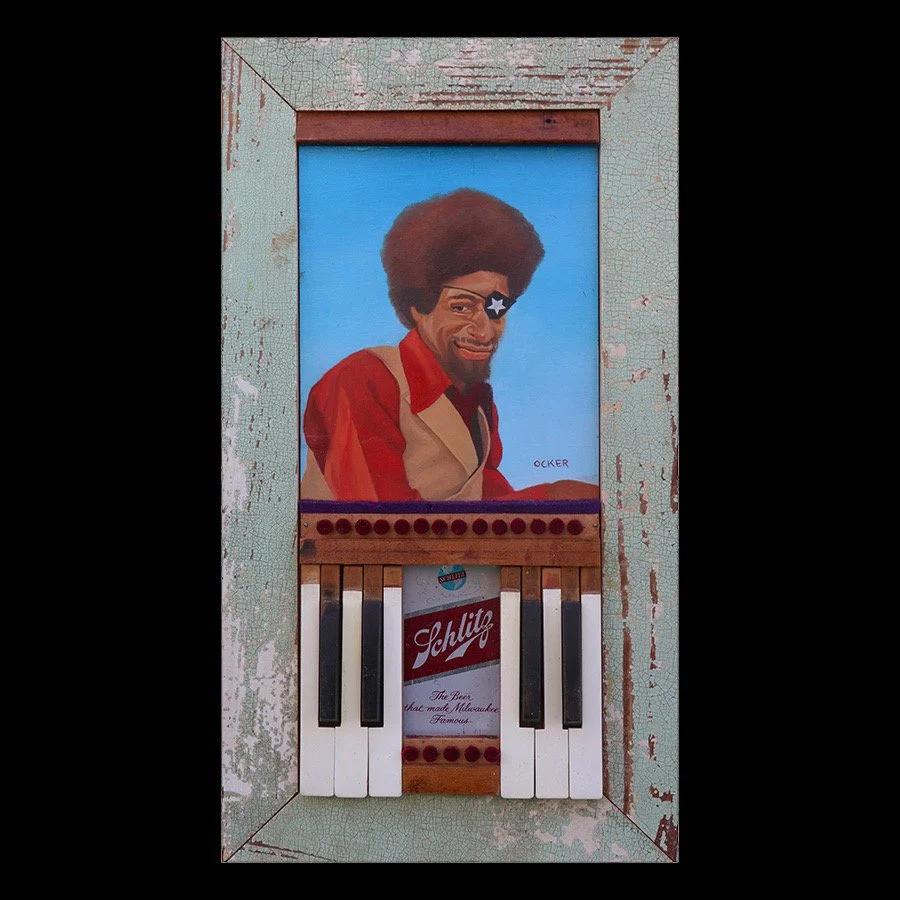Karen Ocker
Karen Ocker
Karen Ocker is one of the region’s great contemporary visionaries a painter, sculptor, and storyteller whose work bridges the sacred and the soulful, the contemporary and the classical. Winner of the 2025 Best in Show Prize at the Ogden Museum of Southern Art’s Louisiana Contemporary Exhibition, Ocker has emerged as one of the South’s most compelling artistic voices. Her work carries the precision of an old master and the spirit of a cultural preservationist, honoring the rhythm and reverence of the city she loves.
Recipient of the South Arts Louisiana State Fellowship Prize in 2020, Ocker’s work has been featured in some of the region’s most respected institutions, including the Ogden Museum of Southern Art, New Orleans Museum of Art, Contemporary Arts Center New Orleans, CANO, the McKenna Museum of African American Art, the Bo Bartlett Center in Columbus, Georgia, TRAX Visual Gallery in Lake City, North Carolina, A.I.R. Gallery in New York, and the Jazz & Heritage Foundation Gallery among others.
Her influence extends far beyond gallery walls. Ocker’s art has graced the pages of the Whitney Museum Biennial Catalog Day for Night (2006), the iconic covers of Offbeat Magazine’s “Jazz Fest Bible”, and even appeared in an NBA All-Star promotion and the Netflix feature film Tall Girl: proof that her visual language speaks effortlessly across media and audiences.
Her works now reside in private and public collections across the United States and Europe, including the New Orleans Jazz and Heritage Foundation, the Memphis Blues Hall of Fame, and Luciano Benetton’s Imago Mundi Collection in Italy.
Ocker’s art transforms reclaimed materials and historical reverence into modern-day relics: portraits and assemblages that canonize the culture bearers of New Orleans as saints of creativity. In her hands, wood, antique musical instruments, gold leaf, and pigment become vessels of memory; her brush resurrects history and icons not as nostalgia, but as living, breathing devotion.
She paints not just what she sees, but what she honors, and in doing so, Karen Ocker reminds us that the art of the modern south is not only a reflection of who we are, but a prayer for who we hope to remain.





